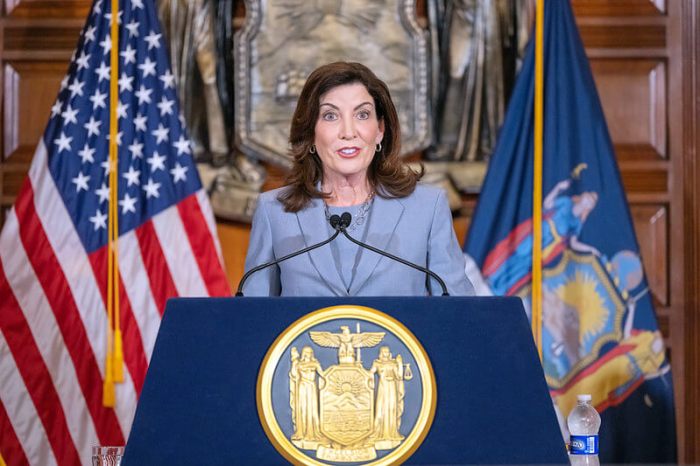The Pan American Health Organization has welcomed regulations that seek to inform and protect consumers in the Americas, including the Caribbean, while creating incentives for healthier eating, saying that they are “important advances that should be stimulated throughout the region.”
In addressing and International Conference on Food Labelling and Fiscal Policies on Healthy Food and Obesity Prevention in Quito, Ecuador, over the weekend, the group’s Dominican-born director Dr. Carissa F. Etienne noted that countries in the Americas — which have the highest obesity rates in the world — are fighting the epidemic with “new, stricter regulations on food labelling, promotion, and advertising.”
Etienne said that one in two adults in the Americas is overweight or obese, adding that the proportion reaches 75 percent or more in some countries.
And 20-to-30 percent of school-age children and adolescents are overweight or obese.
The organization said growing obesity is one of the major contributors to chronic diseases, such as heart disease, cancer and diabetes, which are now the leading causes of death and illness throughout the region.
“These conditions bring not only suffering and pain but also the spectre of economic bankruptcy for both national economies and family budgets,” Etienne said.
The causes of the epidemic include “profound changes in eating patterns in recent decades, with an unprecedented increase in consumption of processed foods and a parallel decrease in consumption of natural products,” Etienne said.
She said although the countries of the Americas are “rich and diverse” in healthy, natural foods, the region is increasingly making junk food “the new basic food.”
Etienne said Ecuador’s Law on Food Security and Sovereignty, which was updated in 2012, is an example of the kind of efforts that are needed to reverse this trend.
The law’s provisions protect small farmers’ rights to produce healthy foods, guarantee consumers’ rights to decide what they want to consume, and stimulate the development of fair international trade.
Efforts such as these, aimed at increasing access to affordable healthy foods, “fall within the framework of strategies that both PAHO and [World Health Organization] promote to stop this pandemic,” Etienne said.
During the week’s conference, Minister of Health of Ecuador Carina Vance presented data from her country’s National Survey on Health and Nutrition that show declines in malnutrition, but also significant increases in obesity.
She said Ecuador’s response to obesity includes a new system of food labelling based on World Health Organization recommendations, which tells consumers how much sugar, salt, and fat are in processed food products.
Other measures taken by Ecuador include regulations on school meals, an obligatory hour of physical activity during the school day, promotion of breastfeeding, promotion of healthy spaces for physical activity in towns and cities, and stricter regulations on tobacco and alcohol.
“Measures directed only at education and action that is directed only at promoting healthy individual behaviours are necessary, but they are not sufficient,” Etienne said.
“The great challenge is to promote public policies that aim to transform the environment, encourage healthy behaviour and inhibit those unhealthy behaviors that are increasing exponentially and that promote harmful and unhealthy patterns of consumption,” she added.






















